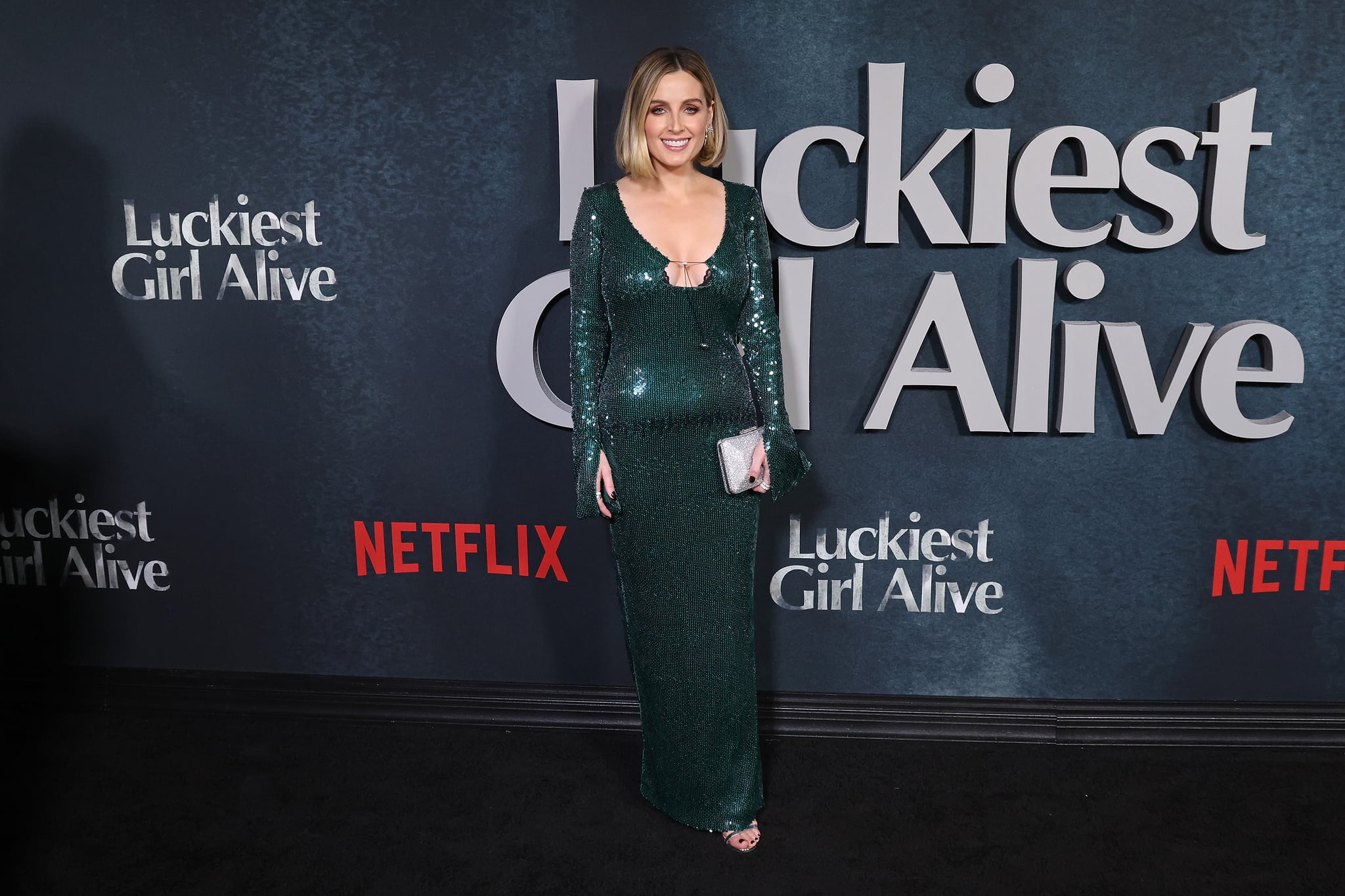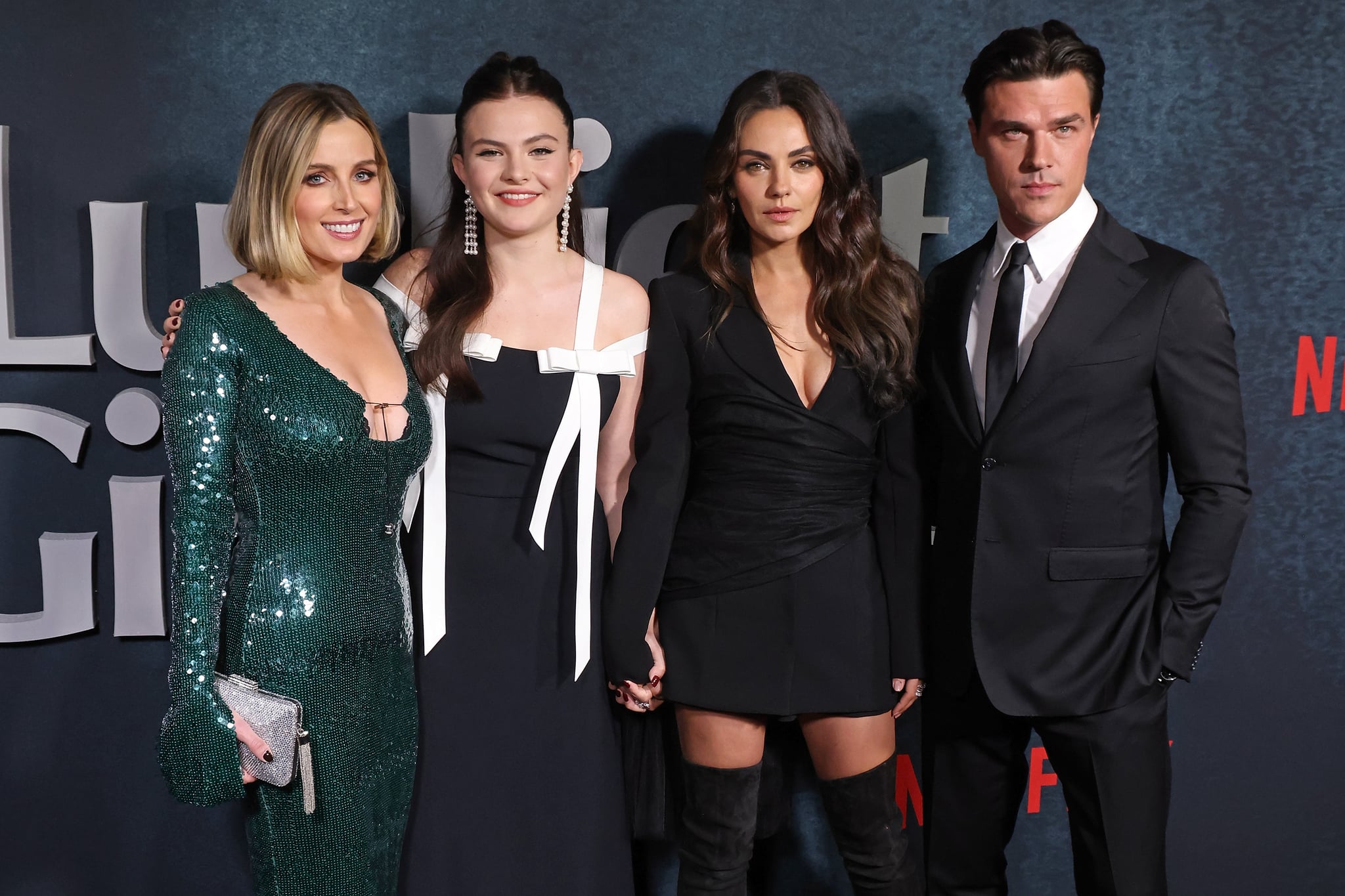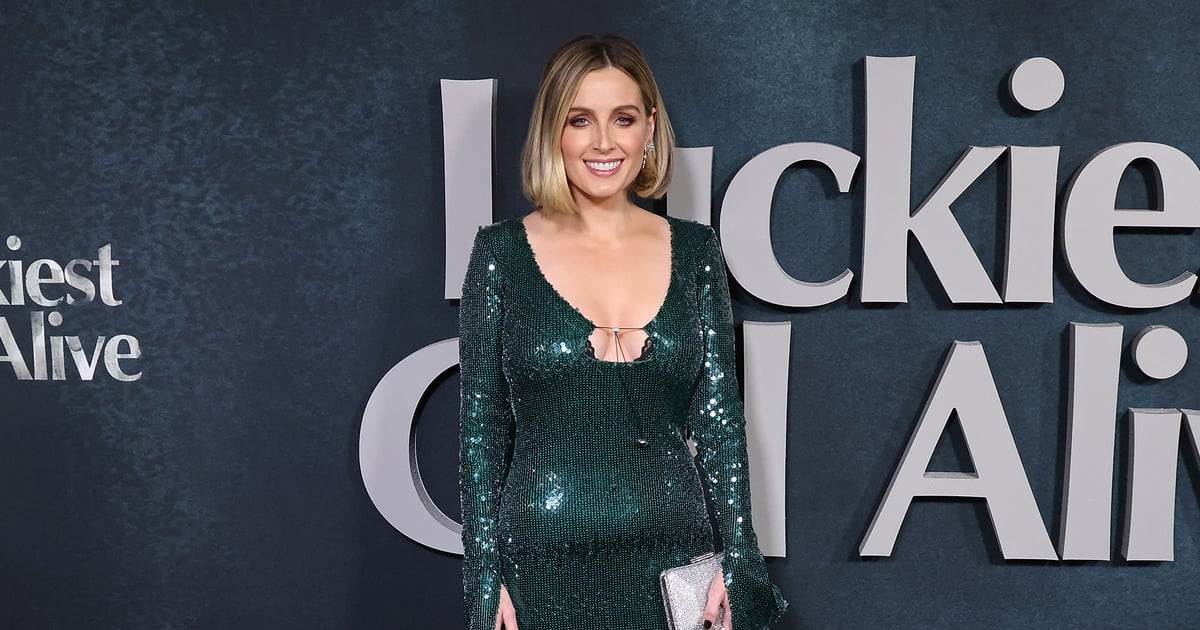
Warning: this interview includes discussions of sexual assault as well as gun violence that may be triggering for those who have experienced trauma.
A year after releasing her New York Times bestselling 2015 novel, “Luckiest Girl Alive,” author Jessica Knoll was ready to share a different yet tragically similar story: her own. In “Luckiest Girl Alive,” protagonist Ani has orchestrated a new life for herself as a glamorous magazine editor. Her shiny facade hides a challenging past, though: Ani — formerly known as TiffAni — had survived a vicious rape in high school and, later, a school shooting orchestrated by a friend. A powerful 2016 Lenny essay revealed that Ani’s journey wasn’t so dissimilar to her creator’s. Knoll, too, had been the victim of a gang rape as a teen. She detailed the traumatic assault — and heart-wrenching and disappointing response from those positioned to help — in her Lenny piece.
“I think the catharsis was in writing [the book]. I think writing the essay and coming forward in a public way about it was the vindication. It felt like building blocks,” Knoll tells POPSUGAR now, as the film version of “Luckiest Girl Alive” streams on Netflix.
Knoll — who, like Ani, attended a private high school and worked as an editor at a magazine (Ani for the fictional The Women’s Magazine, while Knoll had a tenure at Cosmopolitan) — also penned the script for the film, which stars Mila Kunis as adult Ani and “Cruel Summer”‘s Chiara Aurelia as young TiffAni. A lot has changed for Knoll, 38, since the novel’s release. “I didn’t know who I was when I was writing the book,” she says. “I think I now know who I am, and [I’m] starting to live my life in a way that I actually want to. I’m not just living my life so that it looks good to other people.”
That lesson, learned through years of therapy, Knoll says, led her to a place of preparation for seeing her story play out on screen. Knoll tells POPSUGAR she thinks “that art is important, in terms of allowing people to process things that are difficult through art. I think it allows people to take that in and to spark a dialogue. And it should be reflective of what’s going on in the world.”
Unfortunately, both tragedies central to “Luckiest Girl Alive”‘s plot happen too often, which makes the film’s release and end message all the more important. Ahead, Knoll opens up about sharing her own sexual assault experience, working on the film, and what she’s learned with time.
POPSUGAR: Why were Chiara and Mila the perfect actors to portray Ani, in your opinion?
Jessica Knoll: We started with Mila; we started with adult Ani. It was always a question of who was going to step into that role, and then from there it would inform the choice for young TiffAni. Mila, interestingly enough, was a name that — for all the years it was at Lionsgate [before Netflix] — Mila’s name never came up in conversation. When we got to Netflix, [producer] Scott Stuber was the first one who said Mila Kunis, and literally everyone just went quiet. There was complete consensus among the group.
And then with Chiara, I think over 1,500 girls auditioned for the role, and our casting director narrowed it down to 10. I knew who Chiara was because I was watching the AMC show “Tell Me Your Secrets,” and she’s really great in that. And for me, it was instantaneous. She was already in my mind, and I really saw a lot of Mila in her.
PS: Did you have conversations with both of them about how to portray these characters, who are extensions of your own life?
JK: Probably a little bit more with Chiara, and never about portraying the character. Chiara had, I think, more curiosity about parts of my story that I hadn’t written about or gotten into that, privately, we would talk about. I would be like, “You can ask me anything.” And it was also very interesting talking to her as when we were filming it, she was 18, so she’s very close to the age of the character. So we also had a lot of conversations about the issue of consent, and how these incidents get framed, and how there’s still blame dealt out — even with her generation, where they have more education and have a certain articulation around consent that [mine] didn’t.
PS: When the book came out, you hadn’t yet publicly revealed that Ani’s experience was drawn from your own. Can you talk about getting to a place that next year where you were ready to talk about what happened to you?
JK: I was so scarred by my high school experience of saying, “I’ve been raped,” and having everyone from adults to my peers being like, “No, you weren’t. You played a role in it, and stop using that word.” We didn’t have the term gaslighting back then, but it is gaslighting. And so when I started writing the book and I knew that I was going to put that scene in there, that was going to be part of her story. I think my hope was that under the protection of fiction, I could maybe get a sense of how people interpreted that event today and if they saw it the way I saw it. And then if they did, that I would, one, be validated — just that personal validation of like, “I’m not crazy; I’m not making things up.” I mean, it’s crazy. You’re a victim of a crime, and then you’re told there was no crime.
And I think a lot of people have that experience. So firstly, I just wanted the experience of finally being told, “You’re not crazy. That is what happened to you.” And then from there, I felt confident that, “Oh, I can actually come forward and claim this as my own, and I don’t have to worry that I’m going to get hurt a second time around, because readers are showing me that they see this incident for what it is.”
PS: What was it like watching the scene vs. writing it? Was viewing the movie version more difficult or more painful for you?
JK: I didn’t think it would be because I wrote the scene in both the book and in the script, but I also didn’t go to set the day that they filmed it because I didn’t want to make the actors who were in that scene feel uncomfortable, because they’re between the ages of 18 and 22, and I’m 38. When I was that age, someone in a position of power would intimidate me so much. It’s already hard enough to have to do those scenes, so I didn’t want to add to that pressure. So then when I watched the dailies later, I was like, “I’m really glad I wasn’t there.”
It was really hard to watch, and it was sad for me in the way where I was like, “Oh, this is that thing that they say that you do where you normalize what happened to you, even to be able to live with it.” You’re like, “Well, I’m sure it wasn’t, like, that violent, or maybe they were just a little bit confused.” And then when you really watch it — like that scene in the hallway, where they all see her and they’re laughing — seeing that actually happen, it’s just like, “Wow!” It’s a real kind of coordinated effort. That’s very disturbing.
PS: There’s also a school shooting at the heart of the story, and it’s sadly something that is still a frequent reality in America. What care did you and the filmmaking team put into portraying that and how the students react to that in the movie?
JK: [Nonprofit gun-violence prevention organization] Sandy Hook Promise was our media consultant on it. They were reading versions of the script and giving us feedback. For the sexual assault scene, there was an intimacy coordinator on set at all times who actually helped to coordinate the actual choreography of the assault. But then on top of that, there was the mental health support, which was there for anyone who needed it around any of the traumas depicted. And that was not just for the actors, but for anyone involved in the production.
[Most of the actors] are much closer to a generation where they have friends who have survived school shootings. They had to do school shooting drills in their high schools. High school for a lot of people is stressful enough. All the reasons that it was stressful for [my] generation and all the generations that came before it. To add this on top of it, it’s unconscionable. It makes me so angry. It just makes me so angry that we haven’t done anything, really, to help these kids. And it is a fabric of a lot of Americans’ lives. There should be stories around this.
PS: How have you changed since you wrote the book, and how did those changes manifest in the screenplay?
JK: I think I’m less blindly angry at everyone and everything all the time. The crazy thing is, that didn’t happen for a while after the book came out and after the essay came out. I was pretty stuck in a very angry and victimized place for a long time.
At some point, in probably 2020, things started to click for me. When I would have to open the book and read certain passages — because we were trying to remember how she said it in the book and maybe poach something and put it in the script — I don’t recognize that person. It makes me sad, one, how much I hated myself and the way I talked about myself. There were multiple times in that book where she calls herself a piece of sh*t, and that’s me talking to myself, and I’m like, “I just can’t believe I really felt that way.” And at the same time, I thought everyone else was terrible and that everyone hurt me. I couldn’t see goodness in anyone, let alone in myself. I’m completely out on the other side of that now, where I just feel like I have a lot of empathy and compassion for people I never thought I would’ve had empathy and compassion for. I understand that all people have different experiences in life that inform how they are and how they act. I’m just more comfortable, and I know who I am.

PS: Did this lead to changing the ending from the book? Can you talk about that decision and why it’s different in the film?
JK: The spirit of the ending has always been about reclaiming your voice and reclaiming your old identity and not being ashamed of who you are. We still have that in the movie, but what I think that we have that also makes it maybe more cinematic and bigger is that it becomes about more than her. And that was something that happened for me in writing the essay and just the kind of connectivity that that role brought me with so many other women and realizing, “Oh my God, it’s so crazy that we’ve all sat around for so many years and kept this to ourselves and self-blamed,” however it manifested in our unhealthy coping mechanisms.
And a lot of that could start to be alleviated or dealt with in a healthy way, if we would just feel like we’re safe enough to talk about it. People want to feel safe. They want to feel like, “If I’m going to talk about it, I’m going to be supported.” And that was an experience that I got after the book came out. So we wanted to find a way to put that into the movie, too.
“Luckiest Girl Alive” is streaming on Netflix now.
This interview was edited and condensed for clarity.
If you or someone you know would like to speak with someone who is trained to assist sexual assault survivors, please call the National Sexual Assault Hotline at 1-800-656-4673.
